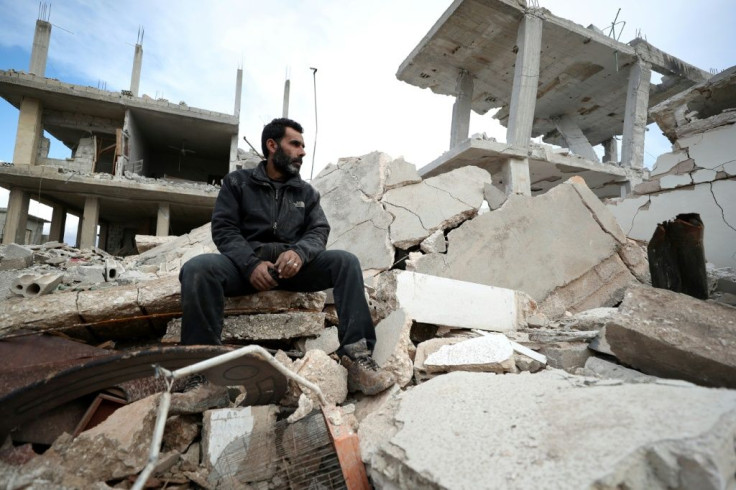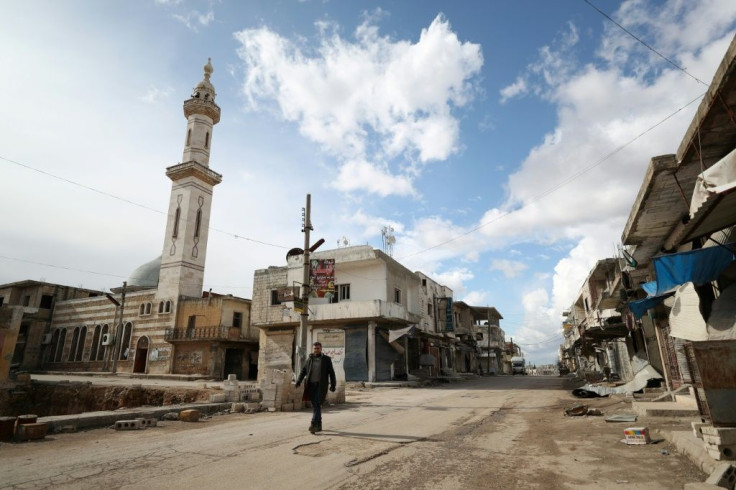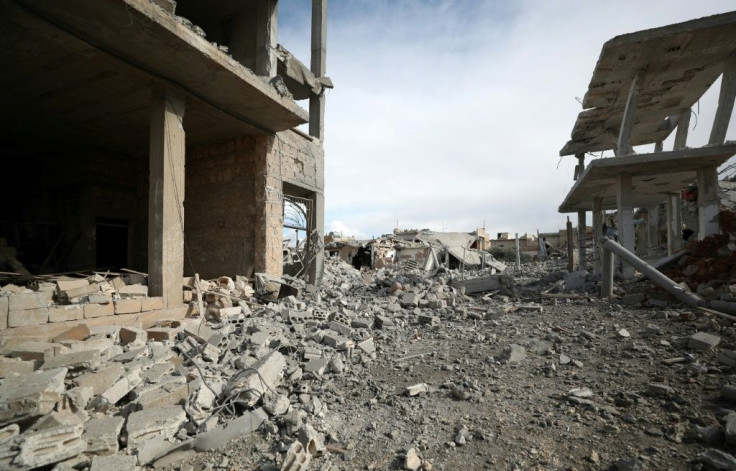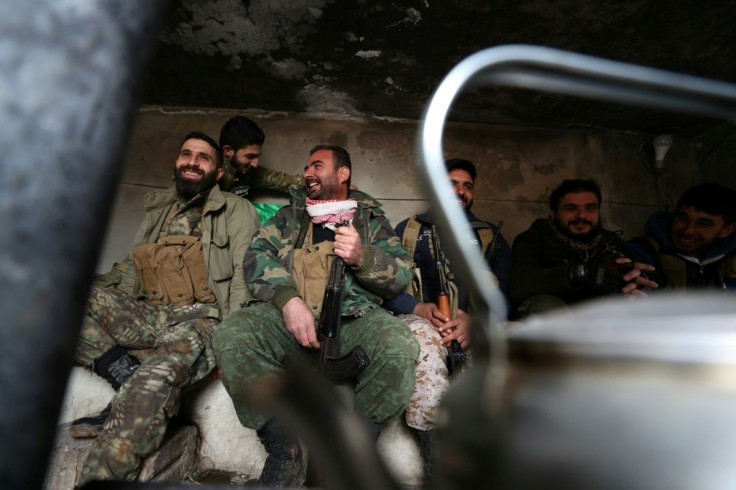As Army Nears Their Hometown, Syrians Grab Last Belongings

Syrian father of four Wael clambers up a pile of rubble, bidding farewell to what remains of his devastated hometown Saraqeb, after all his neighbours fled advancing government troops.
"I'm here to see my neighbourhood one last time," says the 38-year-old who fled with his family 10 days ago.
"I shouldn't have," he adds, on a final trip to pick up the last of their belongings.
"It's heartbreaking."
In the municipal market, fruit and vegetable stalls are bare, shops shuttered. The rain-beaten streets are near empty.
The silence is broken only by a metal door clanging in the wind, and the humming of a truck on another last-minute dash to retrieve abandoned belongings.
Inside a gutted building, two ceiling fans hang motionless. A straggly curtain dangles from a pole.
After weeks of deadly bombardment by the government and its ally Russia, many of Saraqeb's homes have been levelled.
To the north of the town, some three million people -- half of them already displaced by the changing fortunes of the war -- are huddling in what is left of the jihadist-dominated bastion of Idlib.

The violence in the northwest has displaced more than 388,000 civilians since December, the United Nations says.
Nine years into a war that has killed 380,000 people, the country's last major rebel stronghold is shrinking by the day.

"This neighbourhood where I grew up is gone," Wael says.
"It's left us nothing, nothing. It's destroyed the whole country," he says of President Bashar al-Assad's iron-fisted rule.
"It's the civilians who are paying the price, and nobody cares."
Spurred on by Russian military support since 2015, the Damascus government has taken back one region after another and now controls around 70 percent of the country.
For months, it has been chipping away at Idlib, which is dominated by Syria's former Al-Qaeda affiliate, but where allied rebel groups are also present.

Saraqeb -- which sits at the junction of two major highways coveted by the regime -- looks like the next target.
Just a few months ago, the town counted some 110,000 residents, the Syrian Observatory for Human Rights says.
But on Saturday, the frontline stood just five kilometres (three miles) outside town, according to the Britain-based monitor.
In the abandoned market, street artist Aziz al-Ahmar has come one last time to leave his mark.
On a wall, he daubs the black silhouettes of a family fleeing their home.
The mother lugs a suitcase, a young man carries a bundle, and a little girl with plaits clutches a doll.
Dressed in a long blue raincoat, rescue worker Abdu Bakri helps him brush a huge red heart on the wall.
"God willing, we will return to this town," he says.
As he leaves town with a small chest of children's clothes to take to his wife, he breaks down into loud sobs.
Elsewhere in town, a dozen rebel fighters are resting before they return to the front.
Inside a gloomy cement bunker, they sit around a pot of warm tea.
"The guys and me stayed behind to defend our land," explains fighter Abu Trad, who says he spent six months in jail after anti-Assad protests erupted in 2011.
"This conflict has ripped brothers apart, taken children from their mothers and wives from their husbands," says the fighter, staring into the distance.
"It's a dirty war."
But Abu Trad vows to do his utmost to defend his hometown.
"We'll fight till the last bullet -- with stones even, anything we find," he says.
© Copyright AFP 2024. All rights reserved.





















